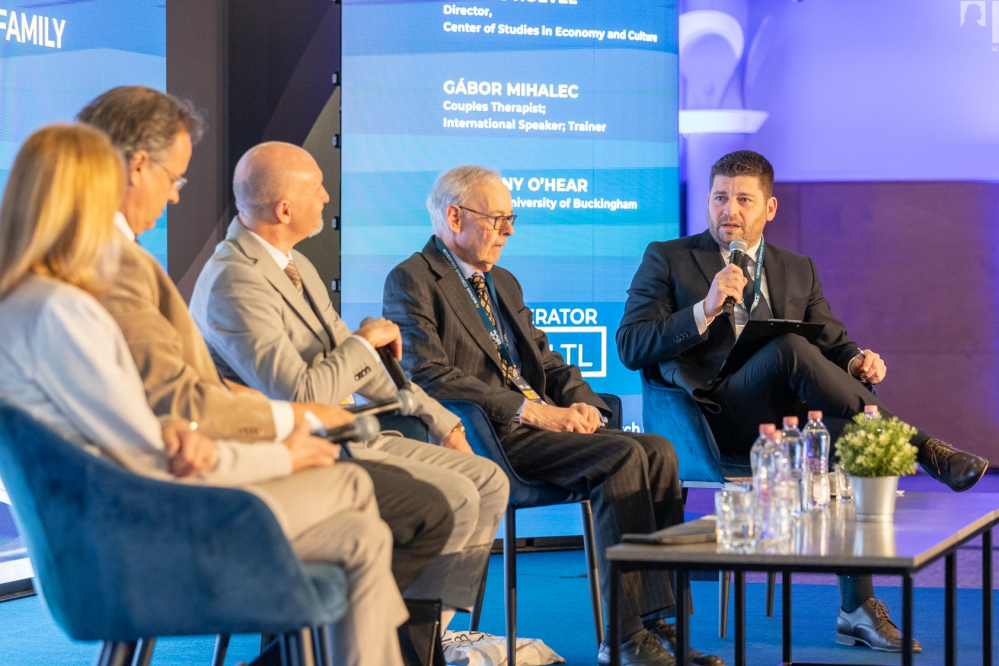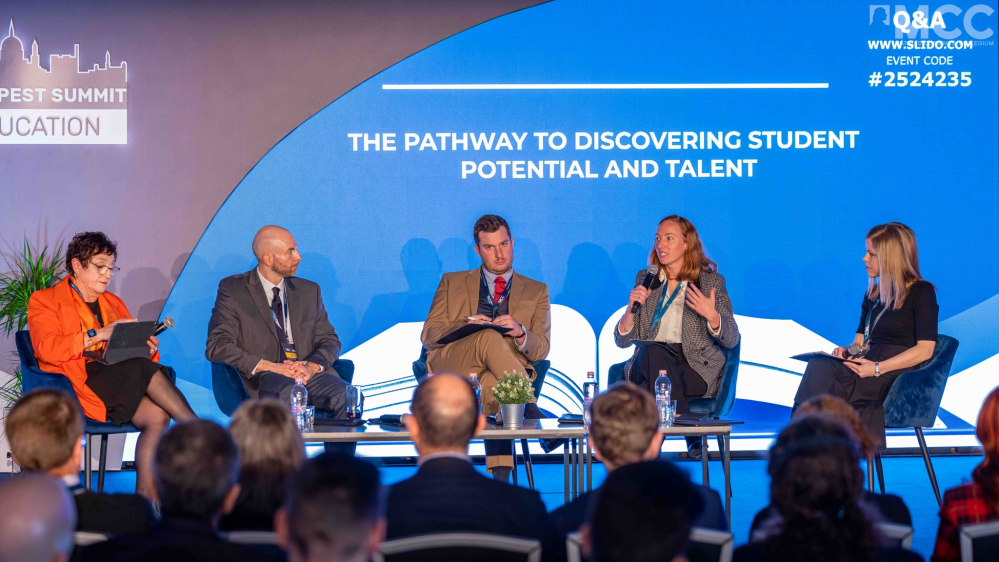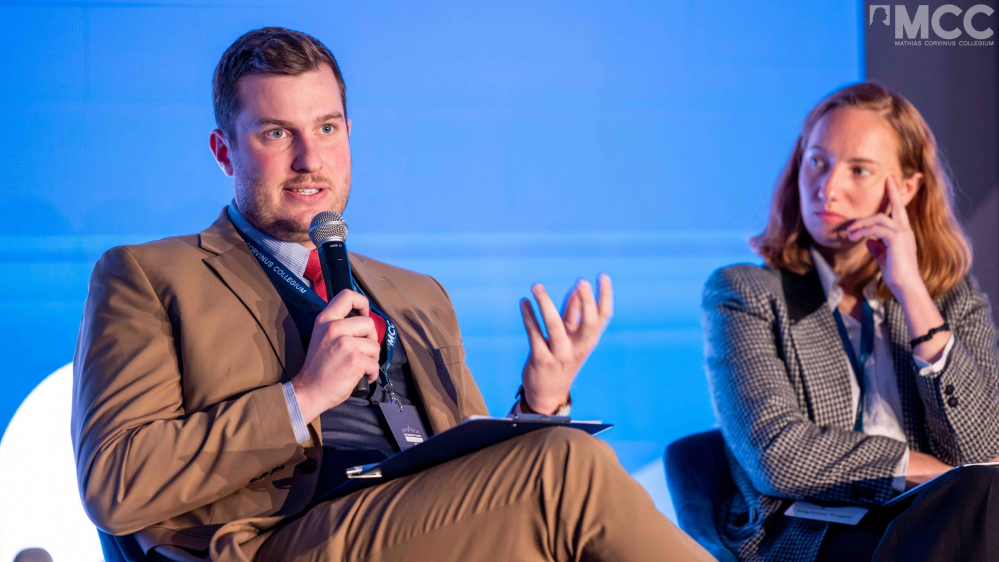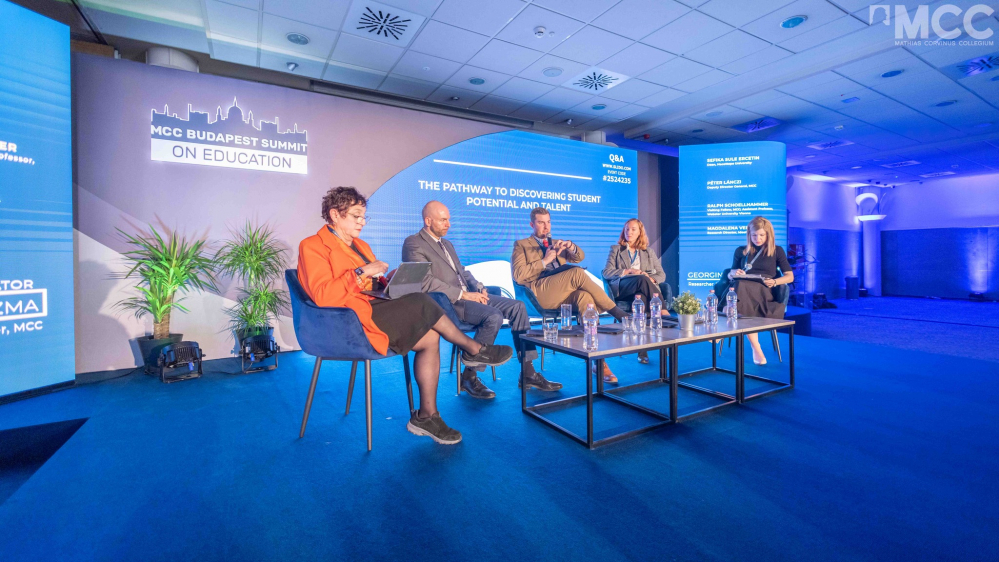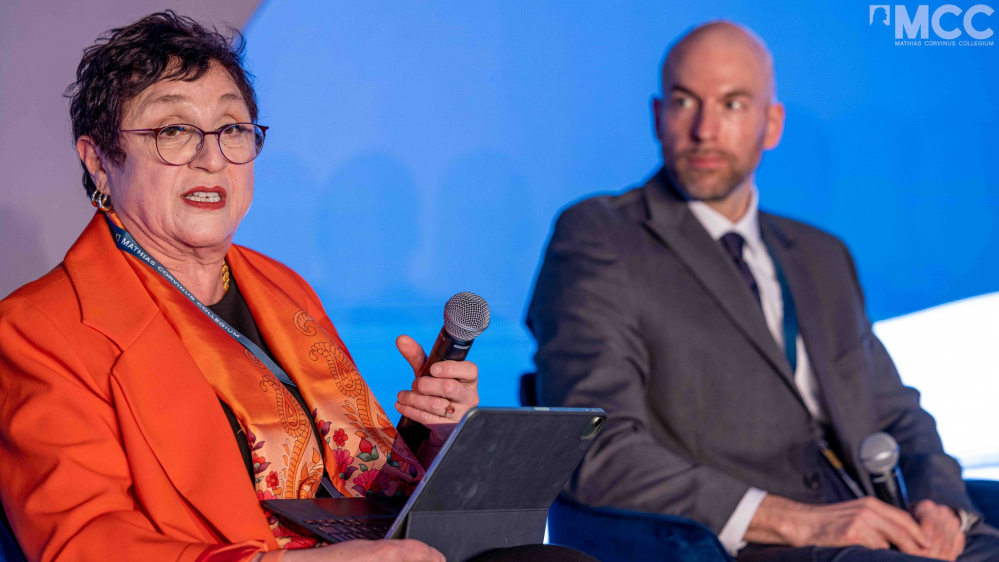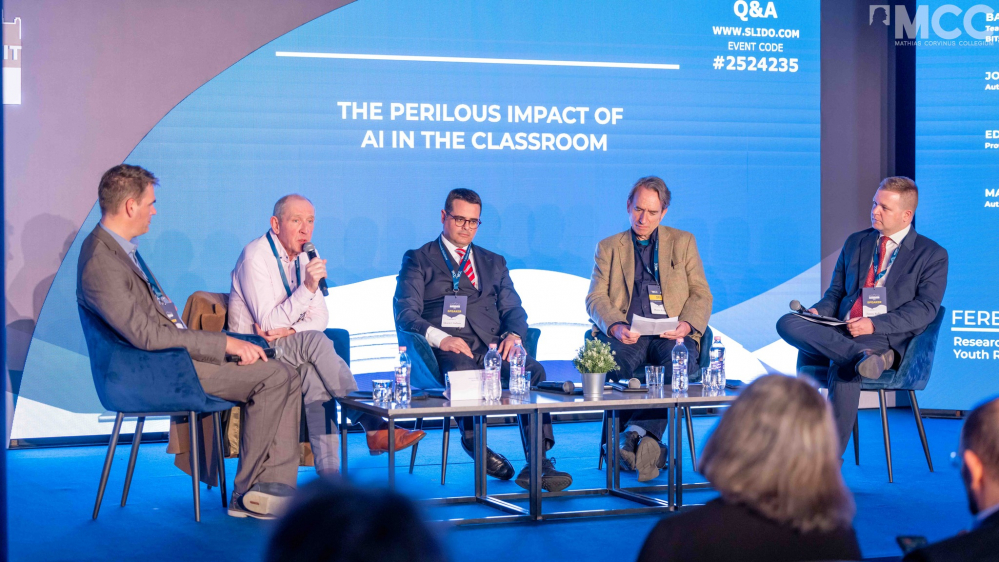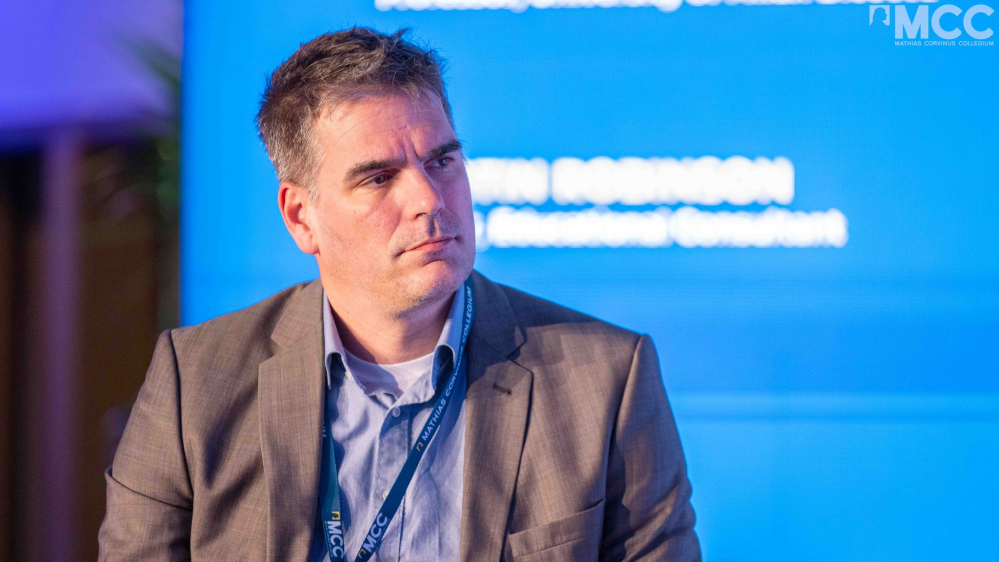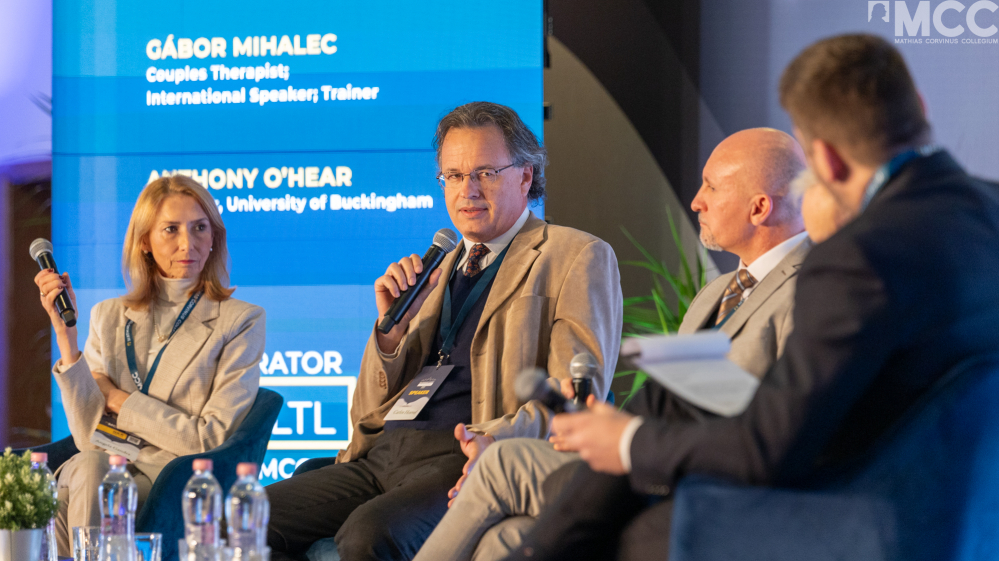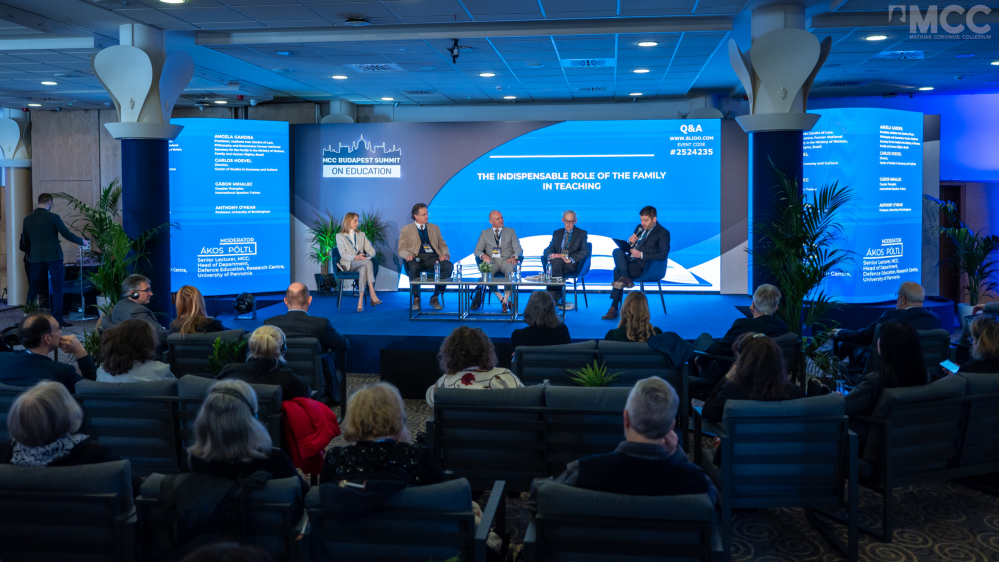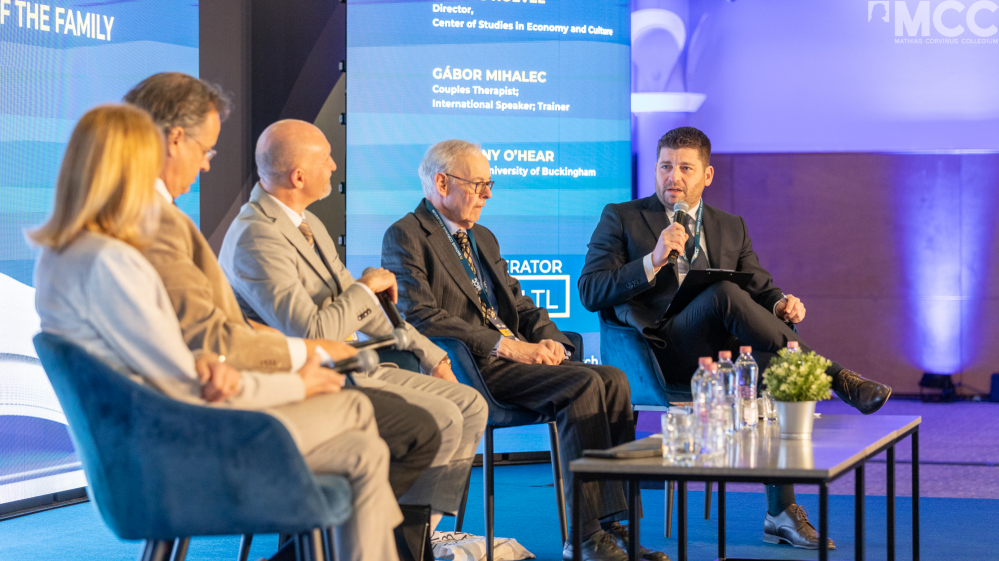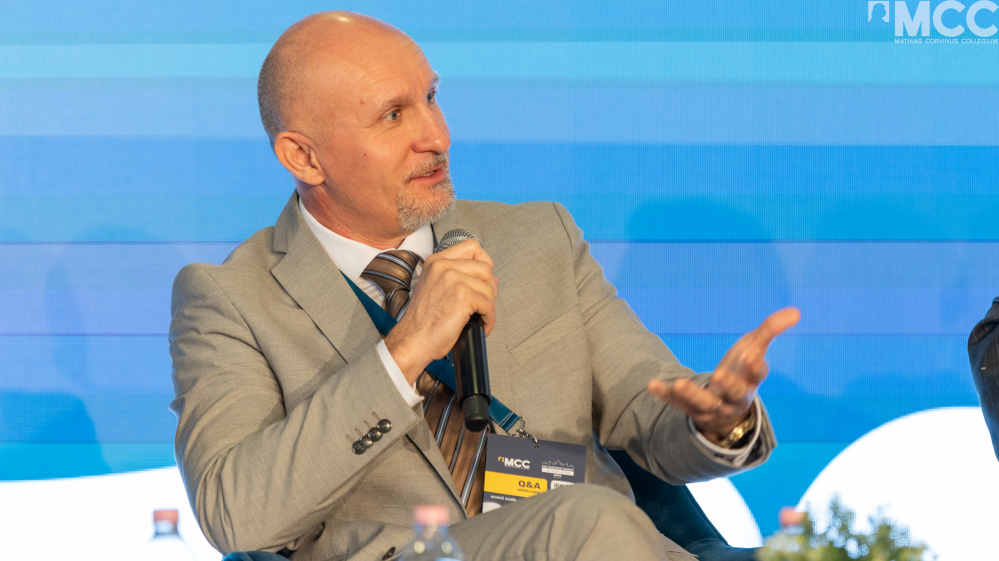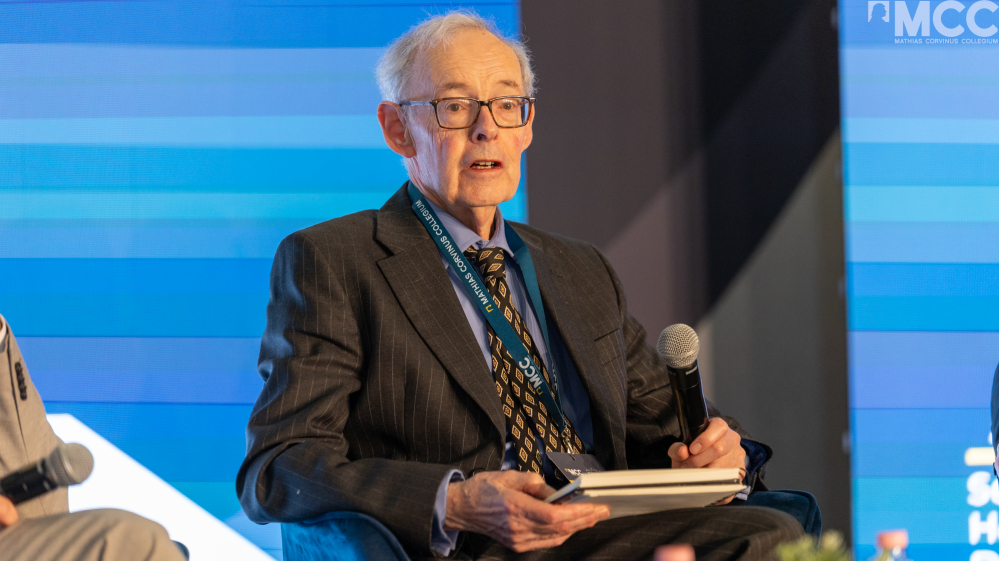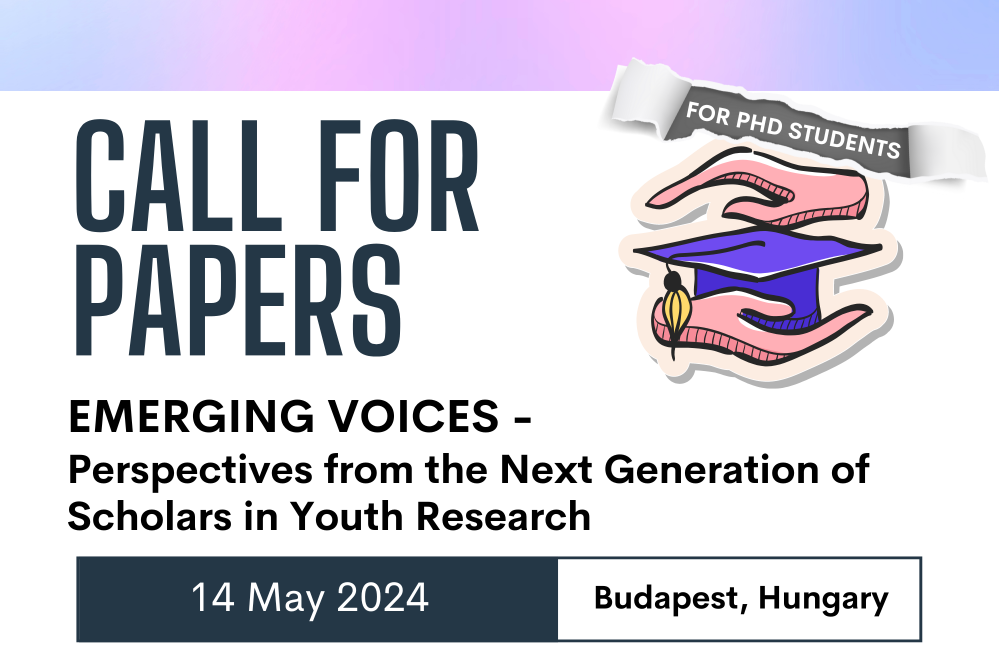Our colleagues at the Youth Research Institute took part in some riveting knowledge/sharing discussions and panel debates over the course of the MCC Summit on Education, organized on February 27th and 28th in Budapest.
First off, Georgina Kiss-Kozma, the Youth Research Institute’s Head of Research, served as moderator on the panel discussion titled: “The Pathway to Discovering Student Potential and Talent”. Participants included Sefika Sule Ercetin, Dean of Hacettepe University, Péter Lánczi, Deputy Director General of MCC, Ralph Schölhammer, visiting MCC Fellow and assistant professor at the Webster University of Vienna, and Magdalena Vergara, Research Director of Chilean thinktank, IdeaPais.
Their conversation sought to answer the question of how talent can be discovered. Speakers also provided their own definitions of what talent itself means and entails and whether there a universal definition exists. How can talent be recognized and supported? They went on to touch upon AI tools like ChatGPT and how they will impact talent fostering and recognition. The panel concluded with opinions on what knowledge and values should be passed onto younger generations.
The following panel discussion, “The Perilous Impact of AI in the Classroom” was also moderated by a member of the Youth Research Institute: researcher Ferenc Sullivan. ChatGPT and other AI tools and their impacts were once again, naturally, the centre of attention in the ways in which they challenge schools, teachers and parents alike. On the one hand, students have a wealth of knowledge at their fingertips, but on the other hand, these technologies allow for a multitude of ways to cheat on exams and can diminish their education.
The panel consisted of Balázs Koren, MCC mathematics teacher and ELTE professor from Hungary, Joe Nutt, author and educational consultant from the UK, Edoardo Raffiotta, professor at the University of Milan Bicocca in Italy, and Martin Robinson, another author and educational consultant from the UK. The speakers generally agreed that all the hype surrounding AI is mainly due to their marketing strategies which declare that AI tools can do certain tasks better than people can in an objective and unbiased manner – yet this is not true at all. Artificial intelliegnece is not capable of replacing personal connections and expertise, but it can definitely be used as a helpful tool. For this very reason, going forward more emphasis will be placed on these human aspects of work and education as this is exactly what cannot be replaced by AI.
AI-powered translation technology was also discussed and whether it has the potential to make learning foreign languages useless. In answer to this, participants pointed out the importance of the cultural significane of language and knowing the nuanced meanings of that language, which AI is not capable of. They mentioned the overall importance of speaking foreign languages in intercultural communications.
Ákos Pöltl, research specialist at the Youth Research Institute was the third and final representative from our team to manage a panel discussion, this one on the topic of “The Indispensable Role of the Family in Teaching”. He sat alongside Carlos Hoevel, Director of the Center of Studies in Economy and Culture in Argentina, Gábor Mihalec, couples therapist and international speaker, Anthony O’Hear, professor at the University of Buckingham, and Angela Gandra, President of the Institute Ives Gandra of Law, Philosophy and Economics and National Secretary for the Family in the Ministry of Women, Family and Human Rights of Brazil.
Their conversation began focused on the crucial role of parents in their children’s education; however, in several countries throughout the west, the gap between parent and teacher expectations is getting increasingly wider. The question of how families can get involved actively in their child’s learning journey was debated along with how parents can protect their children from detrimental aspects of schooling. The topics of schooling from home, the negative impact of screentime on family life, and the decreasing attention spans of students were also discussed.

